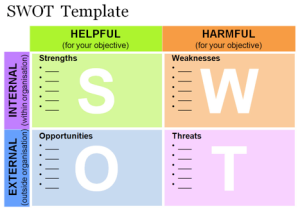 Analysing and monitoring is our part 9 of the series “So you’ve become a recruitment consultant…”
Analysing and monitoring is our part 9 of the series “So you’ve become a recruitment consultant…”
The term people do what you ‘inspect’, not what you ‘expect’ was something that I heard very early on in my management career and it’s stuck. For you it means that your boss is going to be checking up on you a lot in your first 3 months and then throughout your recruitment career.
As a recruitment consultant starting out, it’s just as important that you learn how to manage your boss as they learn how best to manage you. It should be a partnership of you both working together for your success; remember that your success equals their success. You can do several things to help this.
You can go a long way to impressing your line manager by starting to analyse and monitor your activities and results in these first 3 months. Apart from them being two of the first competencies that I wrote about in the previous post 8. The Key Competencies of a Recruitment Consultant, you will also get some major job satisfaction out of following the tips shared here too.
Point 1
Your boss will be looking at you in your first 3 months to decide whether they believe you have what it takes to make it in recruitment. You may not always make a deal in this timeframe, so they need some other factual information to base your probationary appraisal on.
Tip 1 – Monitoring
Once you start performing the activities of a recruitment consultant that we’ve covered in previous blogs i.e. calling candidates and clients, interviewing candidates, booking temps into assignments, going on meetings with customers etc. keep a record of the amount of activity that you do.
It doesn’t have to be technically magnificent if you haven’t got the software to do it for you – a piece of paper with the days of the week and the activities that you want to monitor is good enough. Keep a tally every day and add them up at the end of the week for 1-1s, monthly for Monthly Performance Reviews and quarterly for Quarterly Business Planning.
Point 2
Your boss will be looking for you to be getting better at what you do and achieving more each month.
Tip 2 – Analysing
Once you have the data, make sure that you analyse it and work out what the trends are. Work out your ratios e.g. calls to success. Divide the number of calls you make to clients with the number of client meetings you book.
Calls : Meetings booked is a key ratio if this is a focus to your business. It could be calls : jobs on. Whatever activity you are monitoring, work out the success ratios. It’s no good doing lots of activities, if there are no results from them. For the first month, it doesn’t matter what the ratio is, it just matters that for months 2 and 3 the ratio is getting smaller and you are getting better at what you do.
Point 3
Your boss will want to know that you are gaining a full understanding of what recruitment is all about.
Tip 3 – Utilise the analysis
Once you have your analysis results it’s important that you do something with them! You’ve probably heard of a SWOT analysis (it was discussed in the previous post if not). This is where you identify your strengths, weaknesses, opportunities and threats. Lots of people do them and it’s a good idea at the end of your probationary period to do this for yourself. You may find that you are really successful at converting CVs to interviews and that this is a strength of yours.
Amazingly though, not many people do anything with the SWOT analysis. They crunch the data and gather the information and then produce a report and believe that the SWOT is now done.
Make sure that you take the strengths and put a plan together for these to help you to improve the weaknesses. Included in the plan should be how and when you are going to work on the opportunities available to you and how you are going to minimise the threats.
So by following these 3 simple tips
a) you’ll get an understanding of how you are doing
b) impress you boss
c) give them a clear guide of how to help you improve your skills over the coming year
d) get job satisfaction from knowing you are getting better each month
e) make sure that your probationary appraisal will result in a resounding yes
We’re coming to the end of our 3 months soon, so if you feel that there is a topic that you would like me to cover, then please make a comment and I will aim to cover it by my last blog at the end of June. Coming up next week is Social Media: Tips & Techniques
Angela Cripps, Connemara UK



